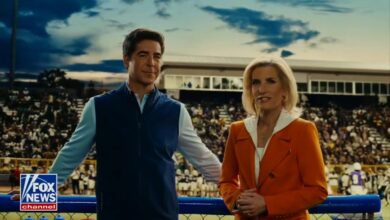NAB Speakers Debate AI’s Impact On Jobs And Artists

The Future of Cinema Summit at the NAB Show kicked off on Saturday morning with a thought-provoking discussion on the role of AI in production. Speakers highlighted the benefits of AI in making production faster and more cost-effective, but also emphasized that it cannot replace the creative vision of human artists.
Eric Shamlin, CEO of Secret Level and co-chair of the TV Academy’s AI Task Force, emphasized the importance of the generalist in the age of AI. He noted that AI tools are allowing people to unleash their creativity like never before, opening up new possibilities for storytelling.
While AI can streamline production workflows and reduce costs, Albert Bozesan from Storybook Studios pointed out that it also comes with limitations. For example, AI may not be suitable for generating dialogue, as actors bring a unique performance to the table.
Bozesan acknowledged the need to have conversations with artists about integrating AI into their work processes. He stressed the importance of embracing AI tools as a way to enhance creativity and remain relevant in a rapidly evolving industry.
Chaitanya Chinchlikar from Whistling Wood added that the impact of AI on creative jobs is complex and varies depending on the role. Visual effects artists, in particular, are finding new opportunities in AI-driven production processes.
As the industry evolves, Shamlin noted that traditional roles like grips and gaffers are being replaced by a demand for more VFX artists. The production timeline for animated movies has also seen a significant reduction, with projects that once took years now being completed in a matter of months.
In conclusion, Shamlin emphasized the need for the industry to adapt to the changes brought about by AI. From addressing copyright issues to reimagining production models, there is a pressing need to find solutions that benefit everyone involved.
Overall, the Future of Cinema Summit highlighted the potential of AI to transform the film industry, while also underscoring the importance of preserving the unique creative contributions of human artists. The conversation around AI in cinema is far from over, but one thing is clear – the future of filmmaking is evolving rapidly, and it’s up to industry professionals to embrace these changes and find ways to thrive in this new landscape.





